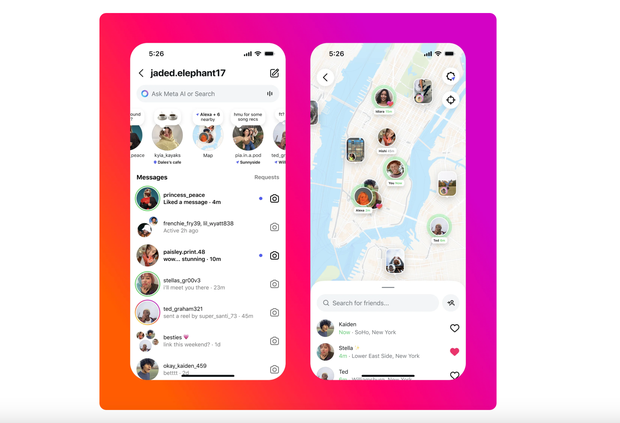Instagram’s New Map Feature Raises Privacy and Safety Concerns

Instagram has introduced a new feature, Instagram Map, enabling users to share their real-time physical location with selected contacts. While Meta, Instagram’s parent company, assures the feature is optional and off by default, privacy experts warn of potential safety risks and unintended data exposure.
Launched on Thursday as part of an app update, Instagram Map allows users to opt into sharing their last active location with chosen friends. The tool also displays posts from friends and creators tagged with locations, visible for up to 24 hours.
Meta emphasized that location sharing requires explicit user consent. “Instagram Map is off by default, and your live location is never shared unless you choose to turn it on. If you do, only people you follow back or a private, custom list you select can see your location,” the company stated.

Users can disable location sharing for specific places or contacts. However, Douglas Zytko, an app safety expert at the University of Michigan-Flint, cautioned that many users are unaware of how much information they share or how to manage privacy settings effectively.
When activated, Instagram Map updates the user’s location whenever the app is opened or revisited. All tagged content including reels, posts, or stories appears on the map for 24 hours.
Instagram head Adam Mosseri shared that he personally uses the feature with a carefully curated list of close friends. Still, confusion has arisen among users, with some claiming their location was visible by default. Mosseri clarified that visibility requires double consent, but acknowledged the company is reviewing the feature to ensure no unintended sharing occurs.
To activate Instagram Map, users tap the messaging function, select the map icon, and choose location-sharing preferences: no one, a custom list, or all mutual friends.
Experts note potential complications in managing visibility across different audience groups, a challenge referred to as “context collapse.” Robbie Torney of Common Sense Media warned that location-sharing features heighten risks for younger users, including social pressures and potential exposure to harassment or stalking.
Research by Common Sense Media indicates that such tools can create pressure among teens to demonstrate social activity by sharing locations, inadvertently revealing real-time whereabouts to unintended audiences.
Privacy advocates recommend users review and adjust their location-sharing settings to align with personal safety preferences.
Read More: LAD REPORTING




